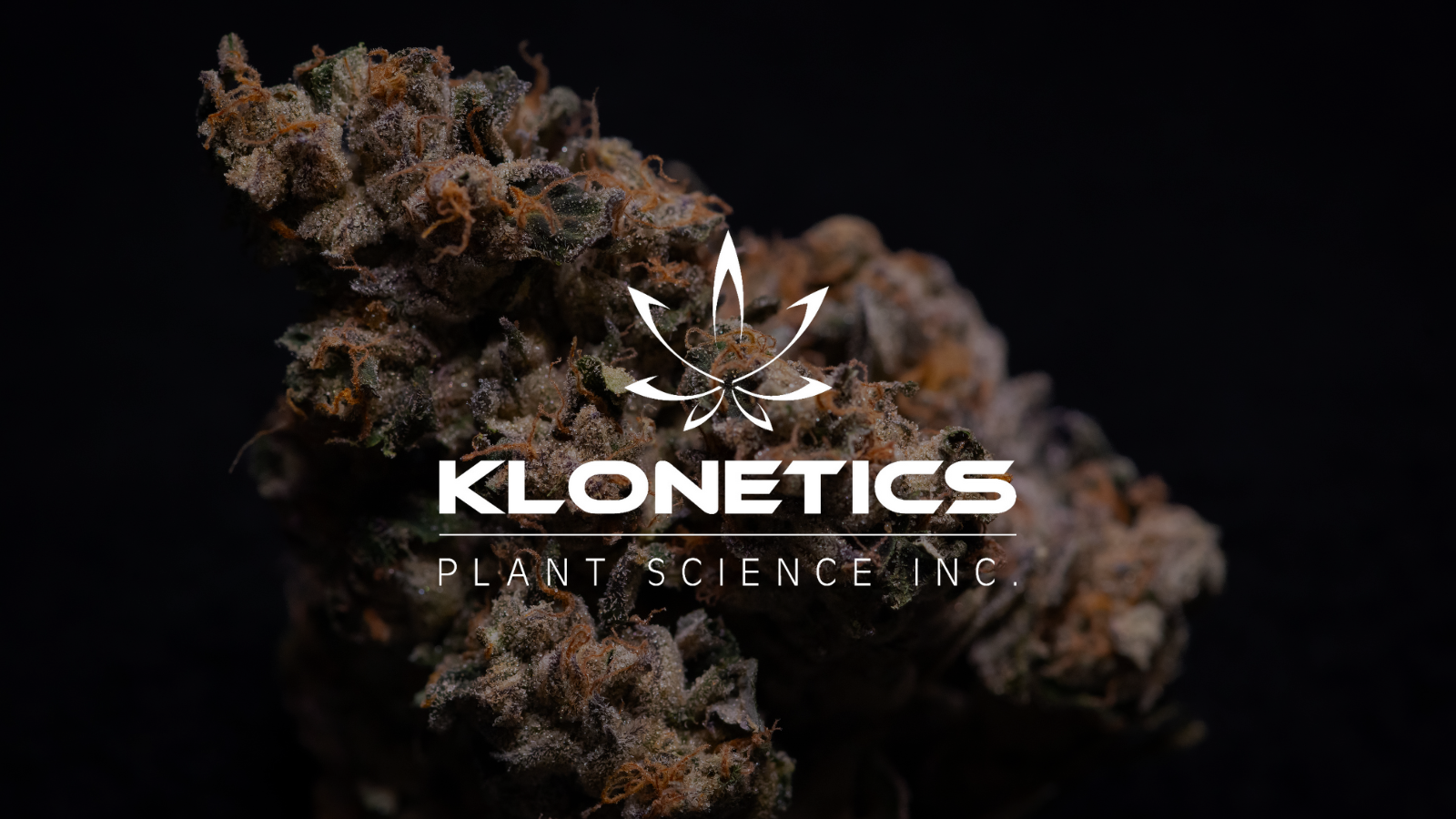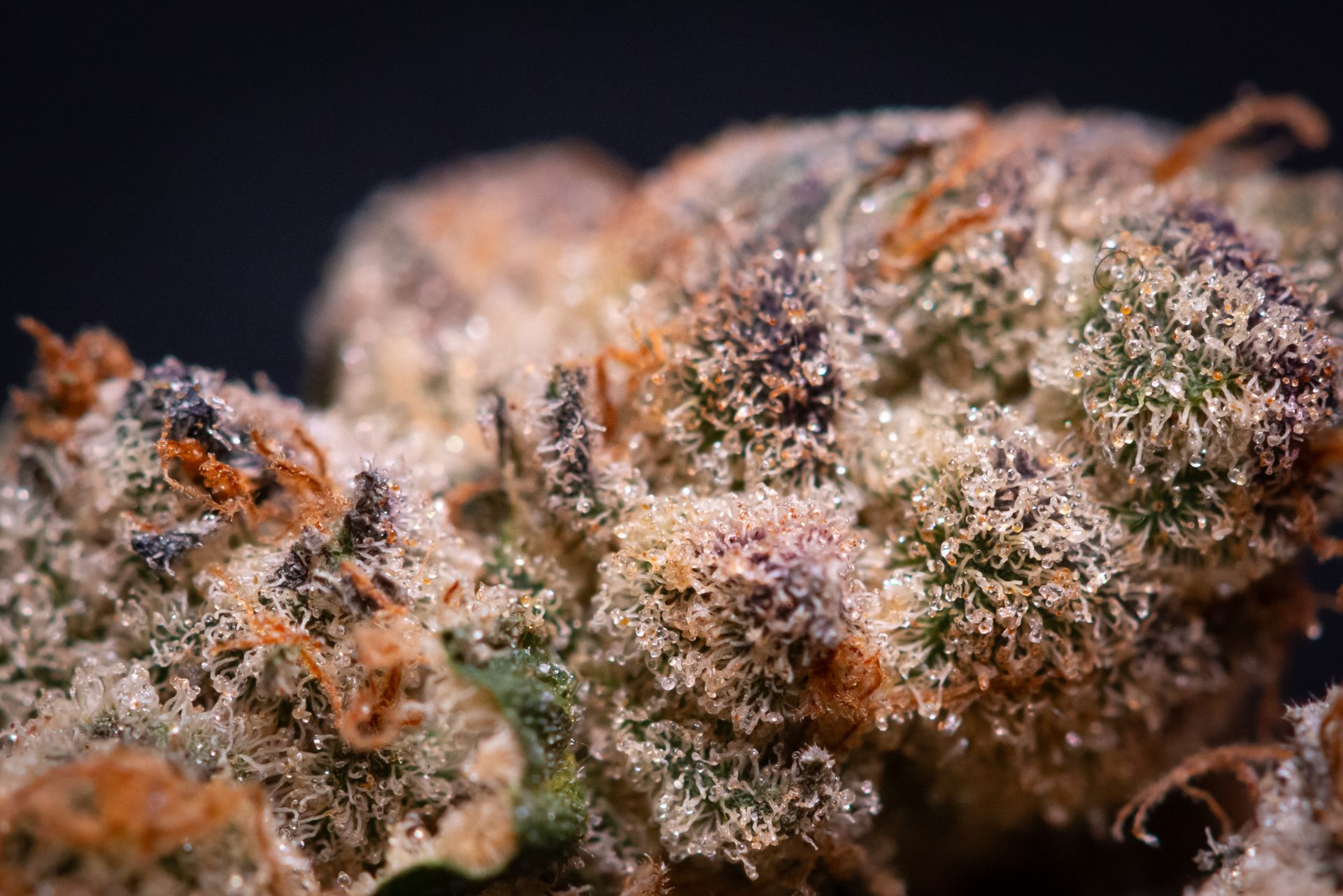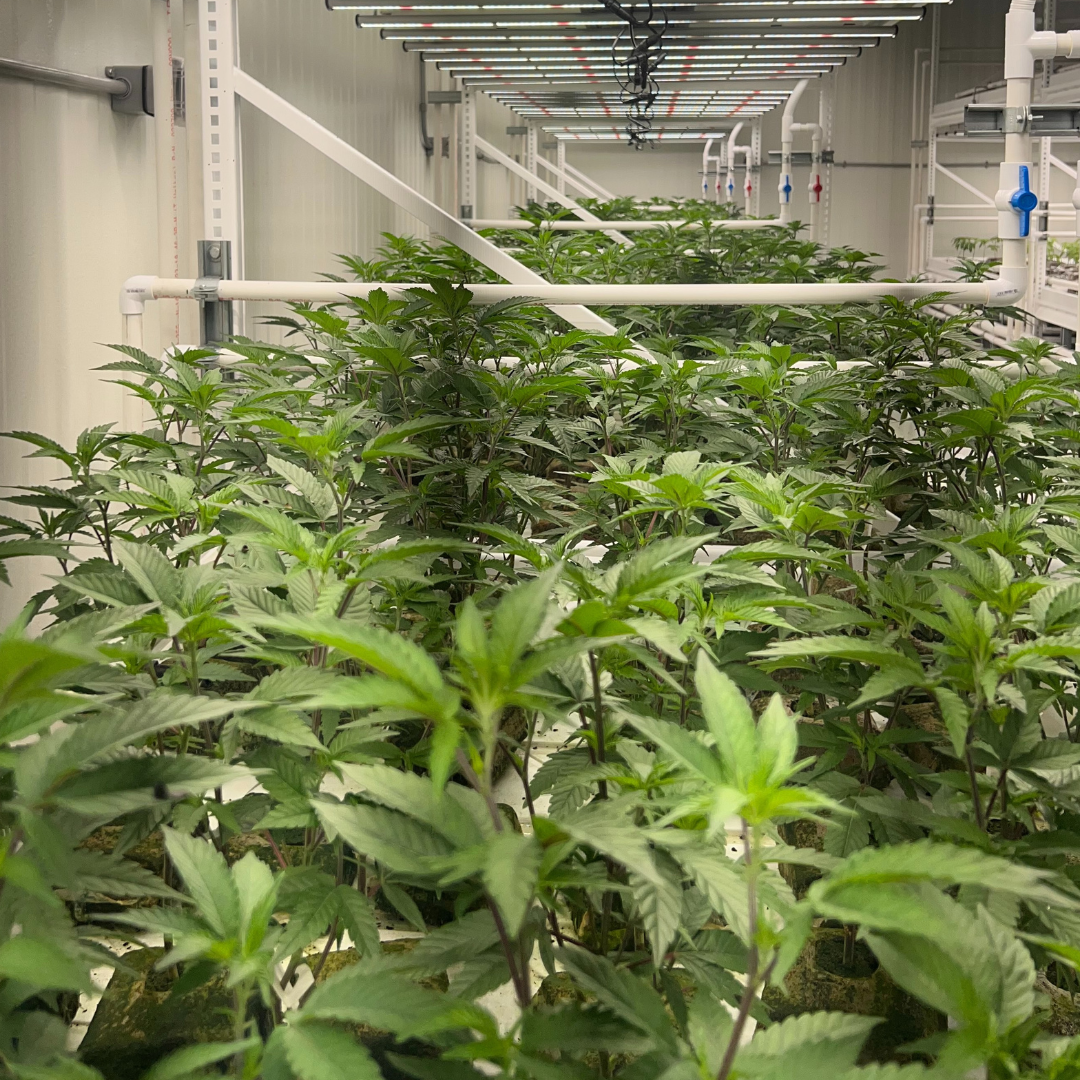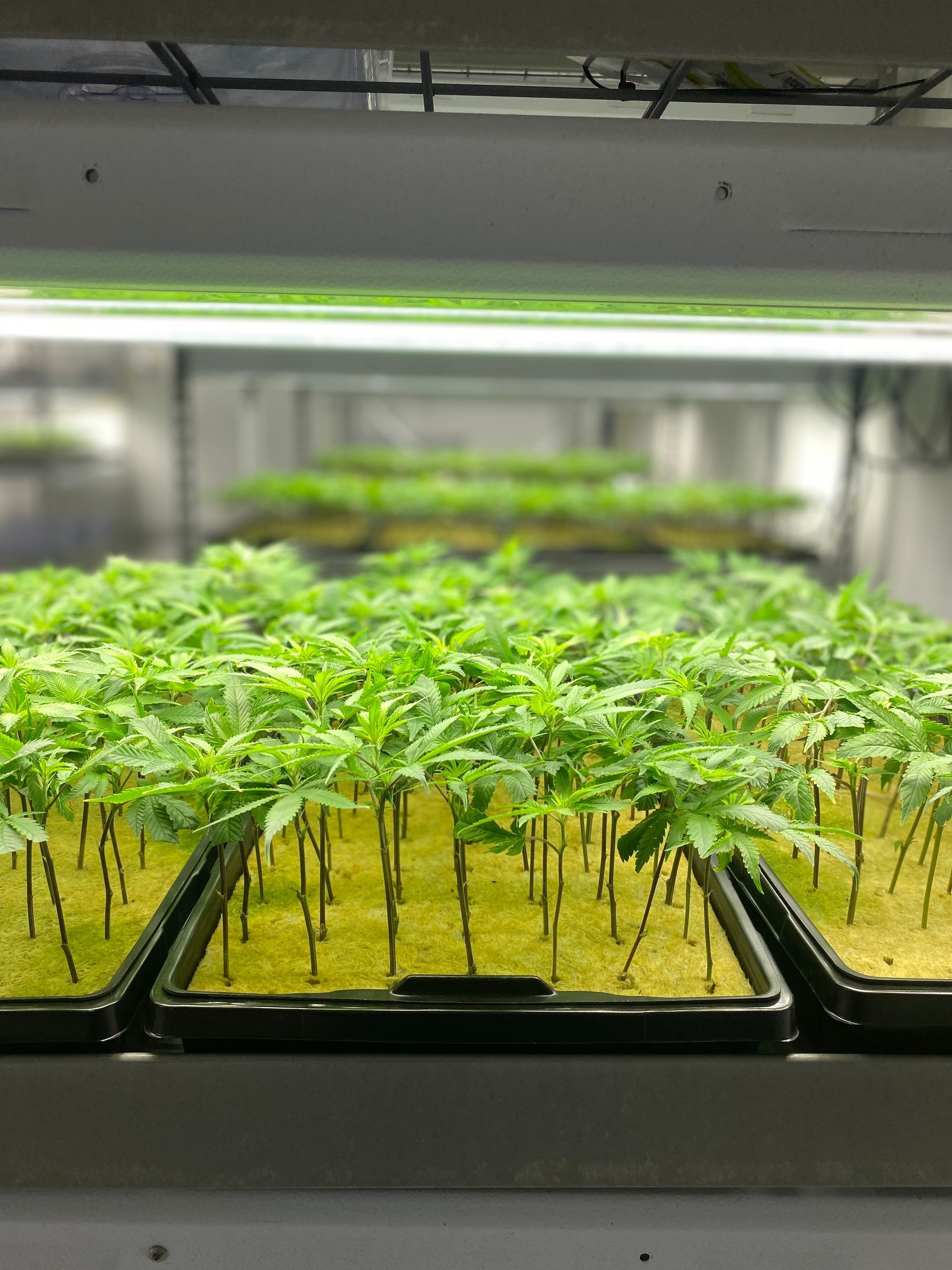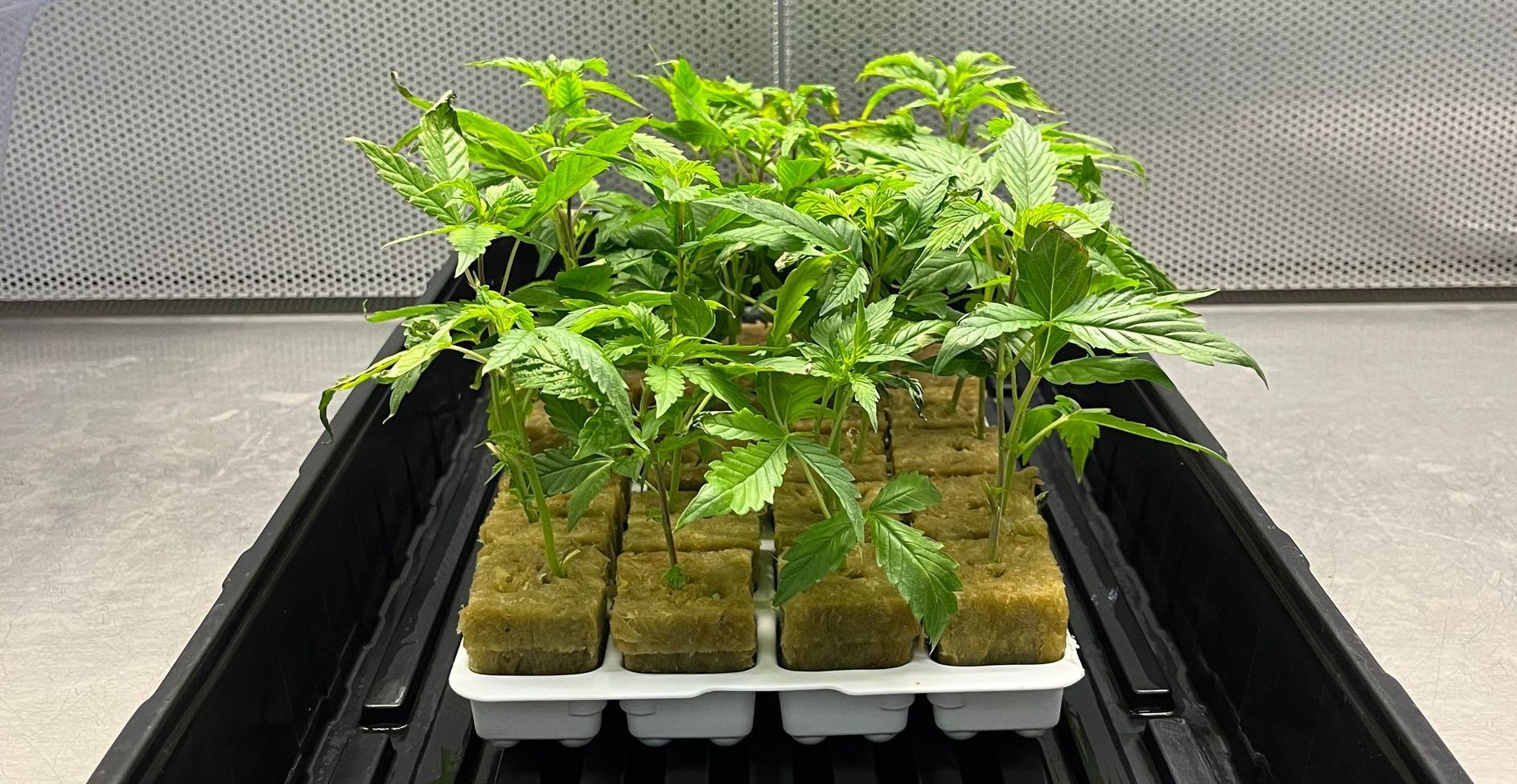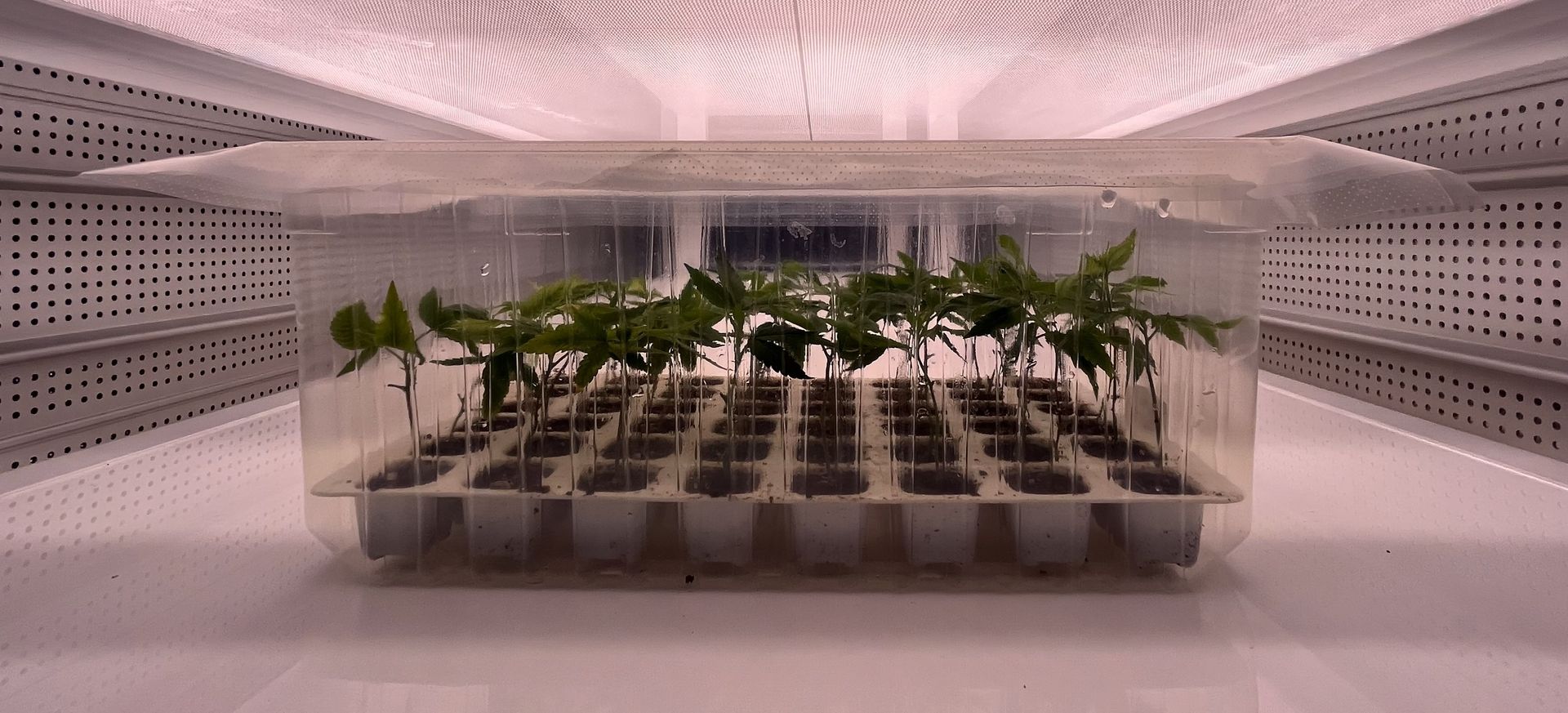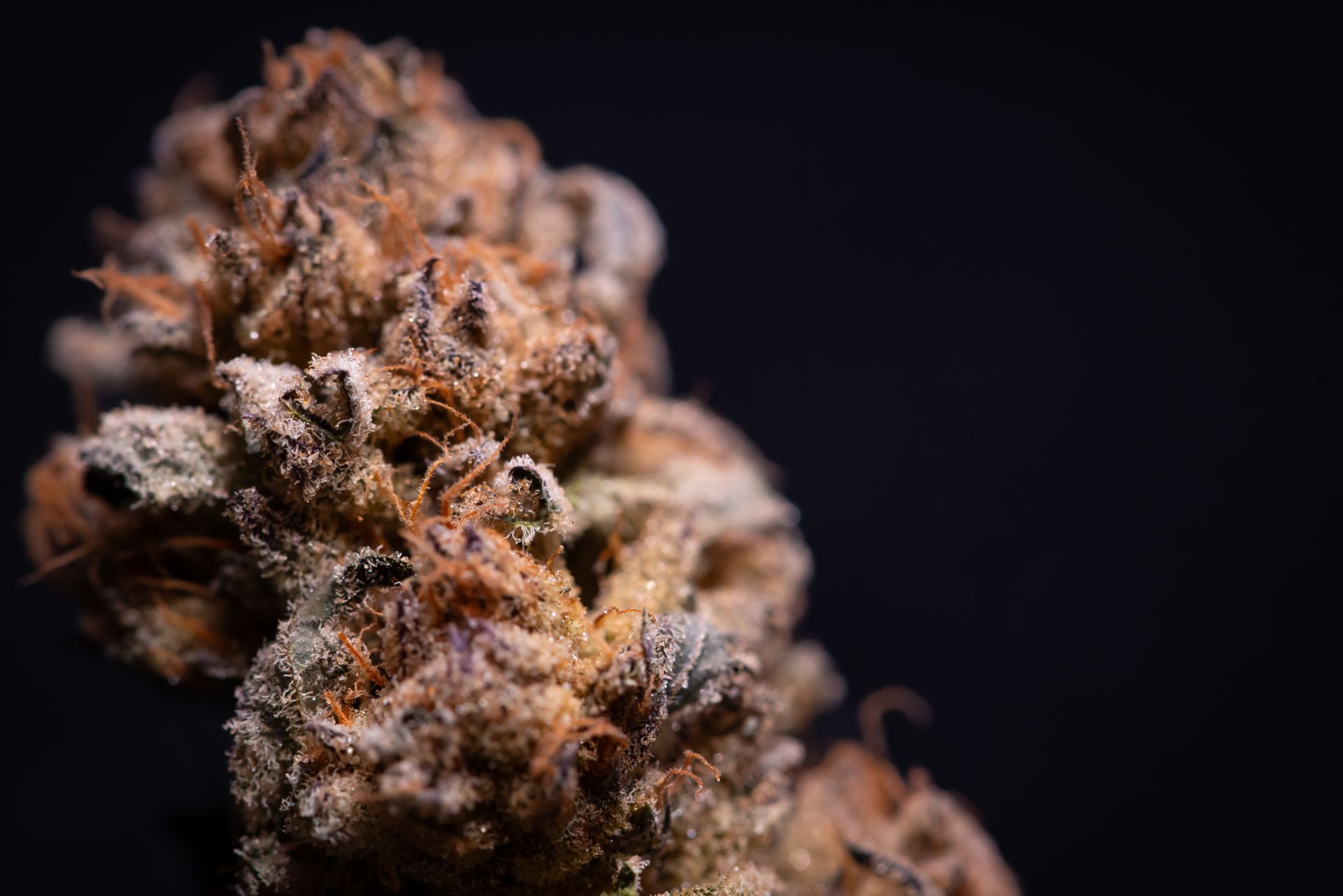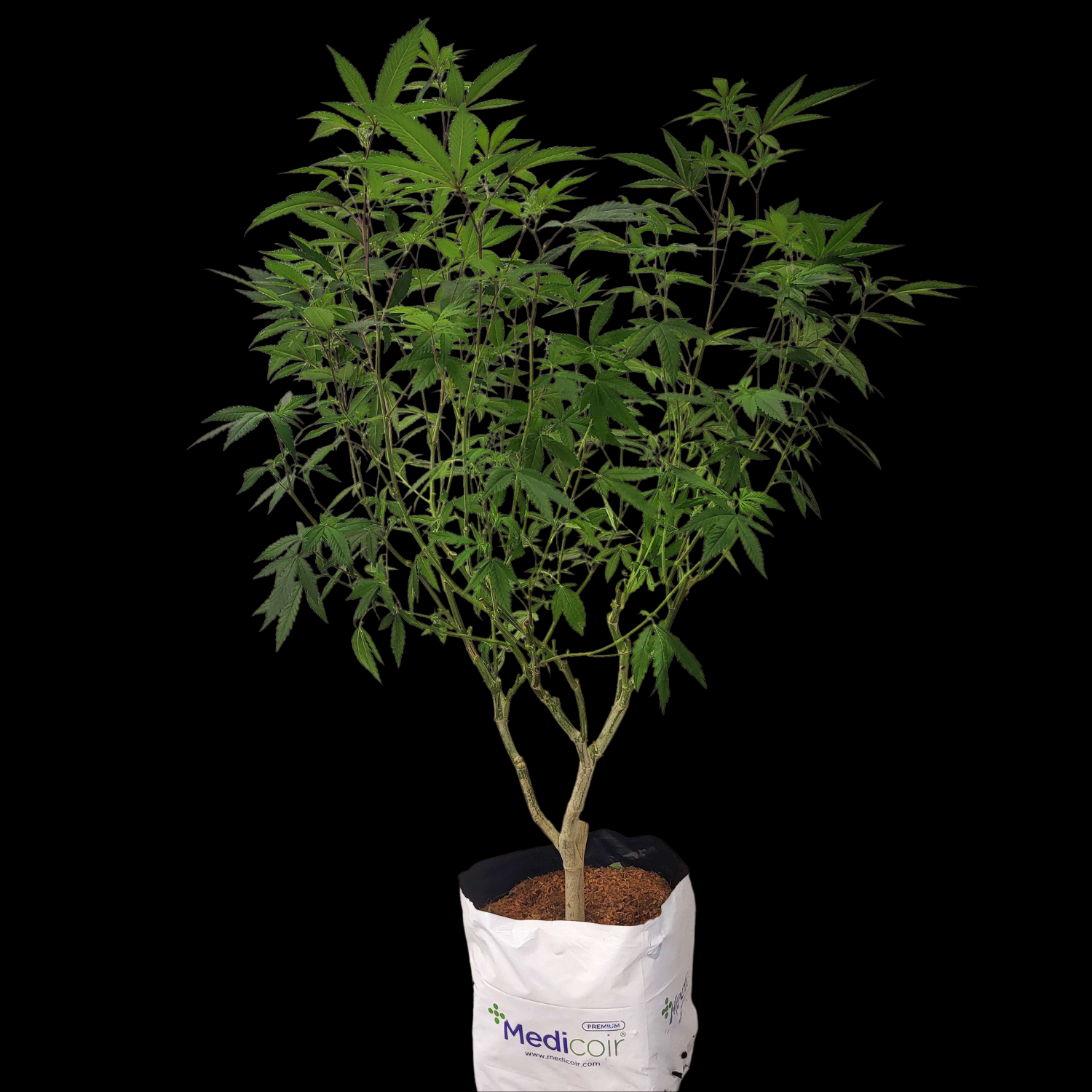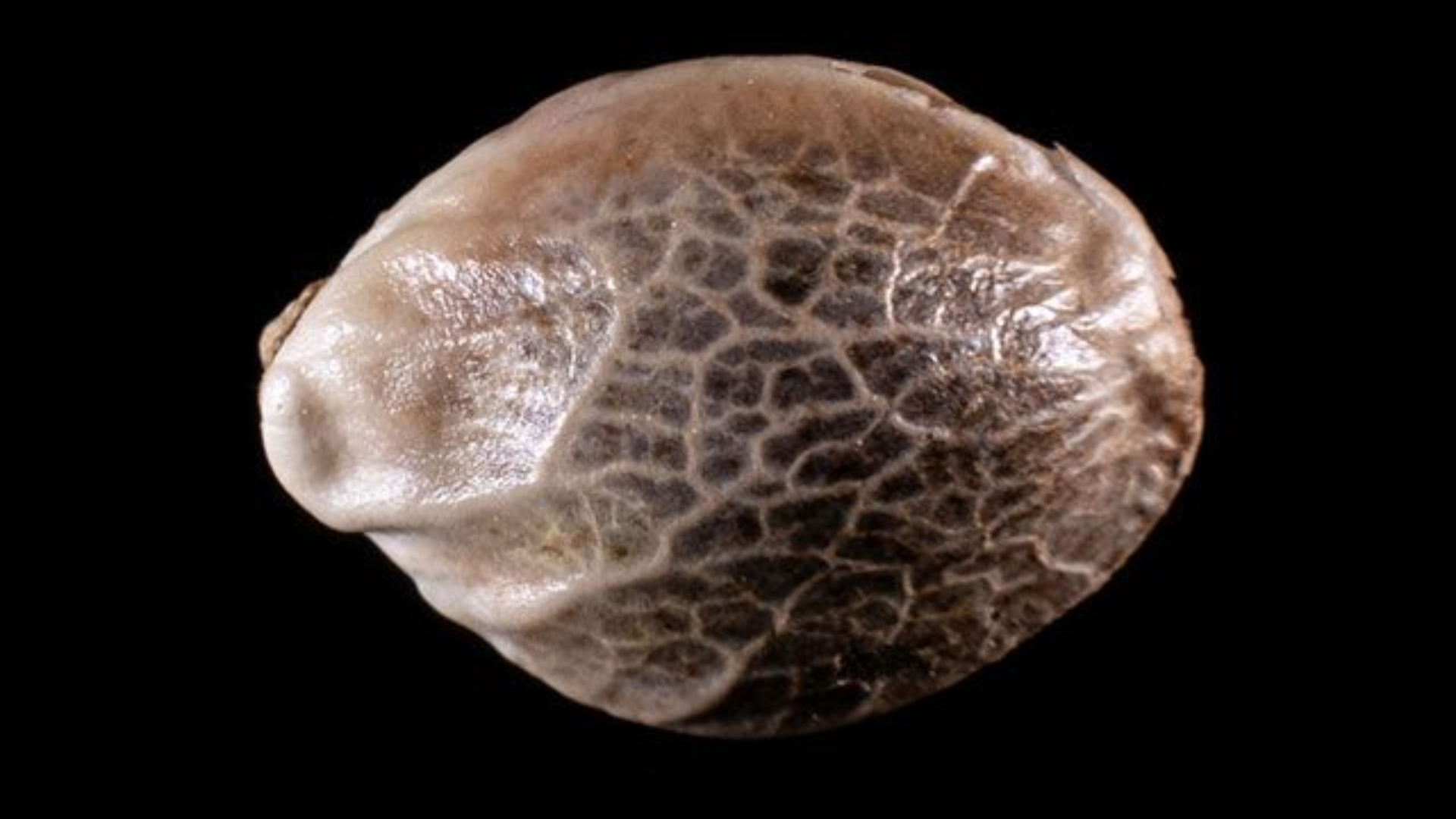Genetic Stability in Cannabis Plants: Growing Guide
Genetic Stability in Cannabis Plants: Growing Guide
Achieving consistent cannabis cultivation is a dream for many growers, but it's a reality that's closer than you might think. In fact, a staggering 70% of successful cannabis cultivation can be attributed to selecting stable and reliable genetics. That's a statistic that should have every cultivator's attention, as genetic stability holds the key to unlocking the full potential of your cannabis plants.
At Klonetics Plant Sciences, we're dedicated to empowering cannabis growers with the knowledge and tools they need to cultivate consistently high-quality cannabis. Our cutting-edge research and expertise in plant genetics have helped us develop a comprehensive guide to understanding and harnessing the power of genetic stability in cannabis cultivation.
Key Takeaways
- Genetic stability in cannabis plants ensures predictable traits, including medicinal benefits, aroma, flavor profiles, and cannabinoid content.
- Understanding cannabis genetics is crucial for successful breeding and strain development.
- Genetic stability allows for reliable growing practices, brand reputation building, and preservation of genetic diversity.
- Factors like environmental stress, nutrient management, and light exposure can impact genetic stability.
- Advanced propagation methods, such as tissue culture, can help maintain genetic stability in cannabis strains.
Understanding Genetic Stability in Cannabis Plants
The foundation of successful cannabis cultivation lies in understanding the intricate world of plant genetics and DNA structure. At Klonetics Plant Sciences, we delve into the complexities of cannabis genetics to unravel the key factors that contribute to genetic stability in these remarkable plants.
Defining Plant Genetics and DNA Structure
Cannabis plants, like all living organisms, possess a unique genetic blueprint encoded in their DNA. This DNA structure, composed of chromosomes, holds the instructions that determine the plant's physical characteristics, growth patterns, and even the production of valuable cannabinoids like THC and CBD. By understanding the role of this genetic information, we can better navigate the nuances of cannabis cultivation.
Role of Chromosomes in Cannabis Plants
Chromosomes are the fundamental units of plant genetics, carrying the genetic material essential for growth and development. In cannabis plants, the correct number and arrangement of chromosomes are crucial for maintaining genetic stability and ensuring consistent traits across generations. Variations in chromosome structure or number can lead to unpredictable plant characteristics, impacting the overall quality and consistency of the final product.
Impact of Genetic Variation on Plant Development
While genetic stability is the ultimate goal, genetic variation can also play a vital role in the evolution and adaptability of cannabis plants. Subtle differences in the genetic makeup of individual plants can result in unique growth patterns, cannabinoid profiles, and resistance to pests and diseases. By understanding and managing this genetic variation, cannabis cultivators can develop strains that cater to the diverse needs and preferences of their customers.
"Maintaining genetic stability in cannabis plants is essential for producing consistent, high-quality products that meet the demands of the modern market."
At Klonetics Plant Sciences, we recognize the importance of genetic stability in the cannabis industry. By delving into the complexities of plant genetics, we empower our clients to cultivate cannabis plants with predictable qualities, ensuring a reliable and satisfying consumer experience. Our commitment to scientific innovation and expert guidance is at the heart of our mission to advance the cannabis cultivation landscape.
The Importance of Phenotypic Expression
At Klonetics Plant Sciences, we understand the crucial role that phenotypic expression plays in the world of cannabis cultivation. Phenotypic expression refers to the physical manifestation of a plant's genetic traits, which can significantly impact the overall characteristics of a cannabis strain.
Maintaining consistent phenotypes is essential for ensuring the reliability and predictability of cannabis strains, both for medicinal and recreational use. Plants from the same strain can end up being different due to the interaction of genetic code with the environment, resulting in different phenotypes. By carefully managing factors that influence phenotypic expression, such as environmental conditions and genetic stability, we can help growers achieve the desired traits and characteristics in their cannabis plants.
"Stabilizing a strain results in homogeneous seeds producing offspring with a dominant phenotype, consistent with the genetics of the strain."
Experienced breeders often manipulate genotypes or phenotypes to create unique varieties, often crossing strains to capitalize on certain desirable cannabis traits. For example, the classic Neville's Haze strain is born from a cross between indica and sativa genetics, delivering heavy yields, high THC content, and specific flavor profiles.
At Klonetics, we are committed to advancing cannabis cultivation through scientific innovation while maintaining the highest standards of quality and genetic integrity. By understanding the importance of phenotypic expression and developing strategies to ensure strain characteristics remain consistent, we can help growers achieve the best possible results in their cannabis operations.
Key Factors Affecting Cannabis Genetic Stability
At Klonetics Plant Sciences, we understand the crucial role that genetics play in determining the effects, flavors, vigor, and growth attributes of cannabis strains. As hybrid cannabis strains typically exhibit dominant traits inherited from their parent strains, it is essential to address the key factors that can impact genetic stability in these plants.
Environmental Stress Factors
Environmental stressors, such as temperature fluctuations and humidity levels, can significantly influence the genetic expression of cannabis plants. Ensuring optimal environmental conditions is crucial for maintaining the genetic integrity of your cannabis cultivation.
Nutrient Management Impact
Proper nutrient management is a critical factor in preserving genetic stability and overall plant health. Carefully monitoring and adjusting the nutrient levels in your cannabis plants can help maintain their genetic profiles and ensure consistent quality across generations.
Light Exposure and Photoperiod Effects
The light exposure and photoperiod experienced by cannabis plants play a vital role in triggering flowering and influencing cannabinoid production. Understanding and precisely controlling these environmental factors can help you cultivate strains with predictable genetic characteristics.
"Genetics play a crucial role in determining the effects, flavors, vigor, and growth attributes of cannabis strains."
Breeding Techniques for Genetic Stability
At Klonetics Plant Sciences, we understand the importance of maintaining genetic stability in cannabis plants. This is crucial for achieving consistent results, whether you're a large-scale commercial cultivator or a small-scale home grower. To ensure genetic stability, we employ a range of cannabis breeding techniques, such as selective breeding and hybrid strains.
Selective breeding, involving the breeding of plants with desirable traits to stabilize characteristics, takes several generations to achieve consistency in offspring. Crossbreeding in the cannabis industry is used to improve potency, yield, and disease resistance among other traits. Our team carefully selects parent plants, documenting their characteristics to reinforce desirable qualities and eliminate undesirable ones in the next generation.
"Maintaining genetic stability is crucial for achieving consistent results in both large-scale commercial cultivators and small-scale home growers."
Tissue culture techniques are also a vital part of our breeding program, allowing us to clone elite parent plants on a large scale and ensure genetic stability and consistency. Molecular breeding using DNA analysis enables us to identify genetic markers associated with desired traits, leading to improved breeding outcomes.
At Klonetics, we are committed to preserving the genetic diversity of cannabis and creating stable, high-quality hybrids that meet the evolving needs of the market. By combining our expertise in cannabis breeding and advanced propagation methods, we strive to deliver exceptional results for our customers.
Maintaining Cannabinoid Profiles Through Generations
At Klonetics Plant Sciences, we understand the importance of preserving the unique cannabinoid profiles of cannabis plants across multiple generations. Our mission is to provide cultivators with the tools and knowledge to maintain consistent THC and CBD levels, as well as a robust terpene profile, in their crops.
THC and CBD Profile Preservation
Qualitative traits, such as the ratios of different cannabinoids, tend to remain fairly stable across cultivation facilities. However, the quantitative aspects, like the absolute amounts of THC and CBD, can vary significantly within genotypes. By employing advanced breeding techniques and carefully monitoring our plants, we work to maintain the desired cannabinoid composition throughout the generations.
Terpene Profile Consistency
Alongside preserving cannabinoid levels, we prioritize the consistency of the terpene profile. Terpenes not only contribute to the unique aroma and flavor of cannabis but also play a crucial role in the plant's medicinal properties. Our team utilizes testing and documentation methods to ensure that the terpene profile remains stable, allowing our customers to deliver a reliable and consistent product.
Testing and Documentation Methods
Rigorous testing and comprehensive documentation are essential for maintaining cannabinoid and terpene profile stability. We employ advanced analytical techniques, such as high-performance liquid chromatography (HPLC) and gas chromatography-mass spectrometry (GC-MS), to accurately measure and monitor the levels of various cannabinoids and terpenes in our plants. This data is meticulously recorded and utilized to guide our breeding and cultivation strategies, ensuring our customers receive a consistently high-quality product.
Advanced Propagation Methods for Stable Genetics
In the quest for maintaining genetic stability in cannabis plants, we turn our attention to advanced propagation techniques. Clonal propagation, tissue culture, and micropropagation are powerful tools that can help preserve the desired traits and characteristics of cannabis strains.
Clonal propagation, also known as vegetative reproduction, involves taking cuttings from a mother plant and rooting them to create genetically identical offspring. This method ensures that the desirable qualities of the parent plant, such as cannabinoid profiles and growth patterns, are faithfully replicated in the clones.
Tissue culture, on the other hand, takes the concept of cloning a step further. By isolating and cultivating plant cells, tissues, or organs in a sterile, nutrient-rich environment, tissue culture can produce large numbers of genetically uniform plants. This technique is particularly useful for rapidly propagating elite cannabis cultivars while maintaining their genetic integrity.
Micropropagation, a specialized form of tissue culture, takes the process even further. This method involves the in vitro regeneration of plants from small explants, such as shoot tips or meristems. By manipulating the growth media and environmental conditions, micropropagation can generate thousands of identical, disease-free plantlets from a single parent plant.
Companies like Klonetics Plant Sciences have embraced these advanced propagation methods to ensure the production of consistent, high-quality cannabis. By leveraging the power of clonal propagation, tissue culture, and micropropagation, they are able to maintain the genetic stability and desirable traits of their cannabis strains, meeting the demands of the discerning cannabis market.
Commercial Applications and Industry Standards
As the cannabis industry continues to evolve, the importance of genetic stability in cannabis plants has become increasingly crucial. Klonetics Plant Sciences, a leading provider of advanced cultivation solutions, has positioned itself at the forefront of this movement, helping commercial growers navigate the complexities of large-scale production and meet the growing demand for consistent, high-quality cannabis products.
Quality Control in Large-Scale Production
Maintaining genetic stability is essential for ensuring quality control in large-scale cannabis cultivation. Klonetics' proprietary techniques and protocols help growers implement standardized testing procedures, ensuring that each batch of cannabis meets stringent quality and potency requirements. By leveraging their expertise in plant genetics, Klonetics assists producers in developing robust quality management systems that minimize variability and ensure the consistent delivery of desired cannabinoid and terpene profiles.
Certification and Testing Requirements
Regulatory bodies across the United States have established certification and testing requirements for the cannabis industry, aimed at ensuring the safety and efficacy of cannabis products. Klonetics Plant Sciences works closely with licensed producers to help them navigate these complex regulations, providing guidance on appropriate testing methods and documentation requirements. By staying up-to-date with the latest industry standards, Klonetics empowers its clients to maintain compliance and build trust with consumers and regulators alike.
Market Demand for Stable Genetics
As the cannabis market continues to mature, consumers are increasingly demanding products with consistent quality and predictable effects. Klonetics' focus on genetic stability aligns with this market trend, enabling licensed producers to meet the growing demand for reliable, high-quality cannabis strains. By working with Klonetics, growers can differentiate their offerings and build brand loyalty by delivering a consistent user experience, ultimately driving greater market success.
FAQ
What is the importance of genetic stability in cannabis cultivation?
Genetic stability ensures predictable traits across generations, including medicinal benefits, aroma, flavor profiles, and cannabinoid content. It allows for reliable growing practices, brand reputation building, and preservation of genetic diversity.
How do chromosomes and genetic variation impact cannabis plant development?
Cannabis plants contain both male and female reproductive structures, with distinct physical characteristics. Chromosomes play a crucial role in determining plant traits, and genetic variation impacts growth patterns, cannabinoid profiles, and resistance to pests and diseases.
What is phenotypic expression in cannabis plants, and why is it important?
Phenotypic expression refers to the physical manifestation of genetic traits. Consistent phenotypes are essential for cannabis cultivation, as they contribute to the reliability of cannabis strains for both medicinal and recreational use.
What are the key factors that influence genetic stability in cannabis plants?
Environmental stressors, such as temperature fluctuations and humidity levels, can affect genetic expression. Proper nutrient management and light exposure are also crucial for maintaining genetic stability and overall plant health.
What breeding techniques are used to achieve genetic stability in cannabis plants?
Techniques such as backcrossing, line breeding, and selective breeding are used to create hybrid strains and reinforce desirable traits while eliminating undesirable ones. Careful parent plant selection and documentation are essential in breeding programs.
How can consistent cannabinoid profiles be maintained across generations of cannabis plants?
Techniques for preserving THC and CBD levels, as well as terpene profile consistency, are crucial. Regular testing and documentation are important for monitoring cannabinoid stability.
What are the advanced propagation methods used to maintain genetic stability in cannabis plants?
Techniques such as clonal propagation, tissue culture, and micropropagation are used to preserve genetic integrity. These methods are utilized by companies like Klonetics Plant Sciences to ensure consistent, high-quality cannabis production.
How do commercial applications and industry standards relate to genetic stability in cannabis?
Quality control measures for large-scale production, including standardized testing procedures and certification requirements, are important for maintaining genetic stability. The growing market demand for cannabis products with stable genetics emphasizes the importance of consistency for both medicinal and recreational consumers.


